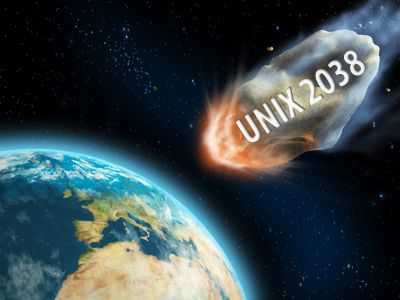2038 January 19 end of the world?
Have you tried asking "Siri" your apple assistant? Would you believe or not? Since the beginning of time, we have all heard countless stories and conspiracies that the “the world will end on [enter predicted date]”. Needless to say, each attempt to predict such an endeavour has been shot down by sceptics at the stroke of 00:01 and discarded in the pile of disproved theories. Of course we are as a species fascinated by the possibility of understanding or even controlling our universe through a plethora of scientific and religious disciplines. Whilst we may never fully understand the overarching workings of humanity on earth, we can and indeed should attempt to question life. As we return to work in the darkness of the early hours, our minds are likely to be set towards meetings, tasks and the  clock counting down to the weekend and not the ephemeral question of the ending of time. Back in 1990’s a theory (that similar to end of the world conspiracies) took a hold of the world, bringing into question how a new millennium might affect, disrupt or even destroy the technology and computer systems that the modern world has come to rely on. The problem manifested due to scientists in the 1950’s and 60’s basing their technical date structure on two digit dates, which would not work beyond 1999. It is interesting how decisions that formed the cornerstones of creations such as computer software have simultaneously such a grip on modern day, but also the power to completely unsettle our lives. Some scientists predicted that computers would cease to function, causing a new millennia meltdown. In the end there were a very few problems, that affected programmes such as Microsoft Excel, coding languages such as C and JavaScript and several older Windows operating systems. Following several updates the Millennium Bug or “Y2K Problem” was eradicated; nevertheless, we had a brief encounter with an end of the world scenario, a precious reminder of the fragility of life and furthermore the systems that sustain and organise the intricacies of modernity.
clock counting down to the weekend and not the ephemeral question of the ending of time. Back in 1990’s a theory (that similar to end of the world conspiracies) took a hold of the world, bringing into question how a new millennium might affect, disrupt or even destroy the technology and computer systems that the modern world has come to rely on. The problem manifested due to scientists in the 1950’s and 60’s basing their technical date structure on two digit dates, which would not work beyond 1999. It is interesting how decisions that formed the cornerstones of creations such as computer software have simultaneously such a grip on modern day, but also the power to completely unsettle our lives. Some scientists predicted that computers would cease to function, causing a new millennia meltdown. In the end there were a very few problems, that affected programmes such as Microsoft Excel, coding languages such as C and JavaScript and several older Windows operating systems. Following several updates the Millennium Bug or “Y2K Problem” was eradicated; nevertheless, we had a brief encounter with an end of the world scenario, a precious reminder of the fragility of life and furthermore the systems that sustain and organise the intricacies of modernity.